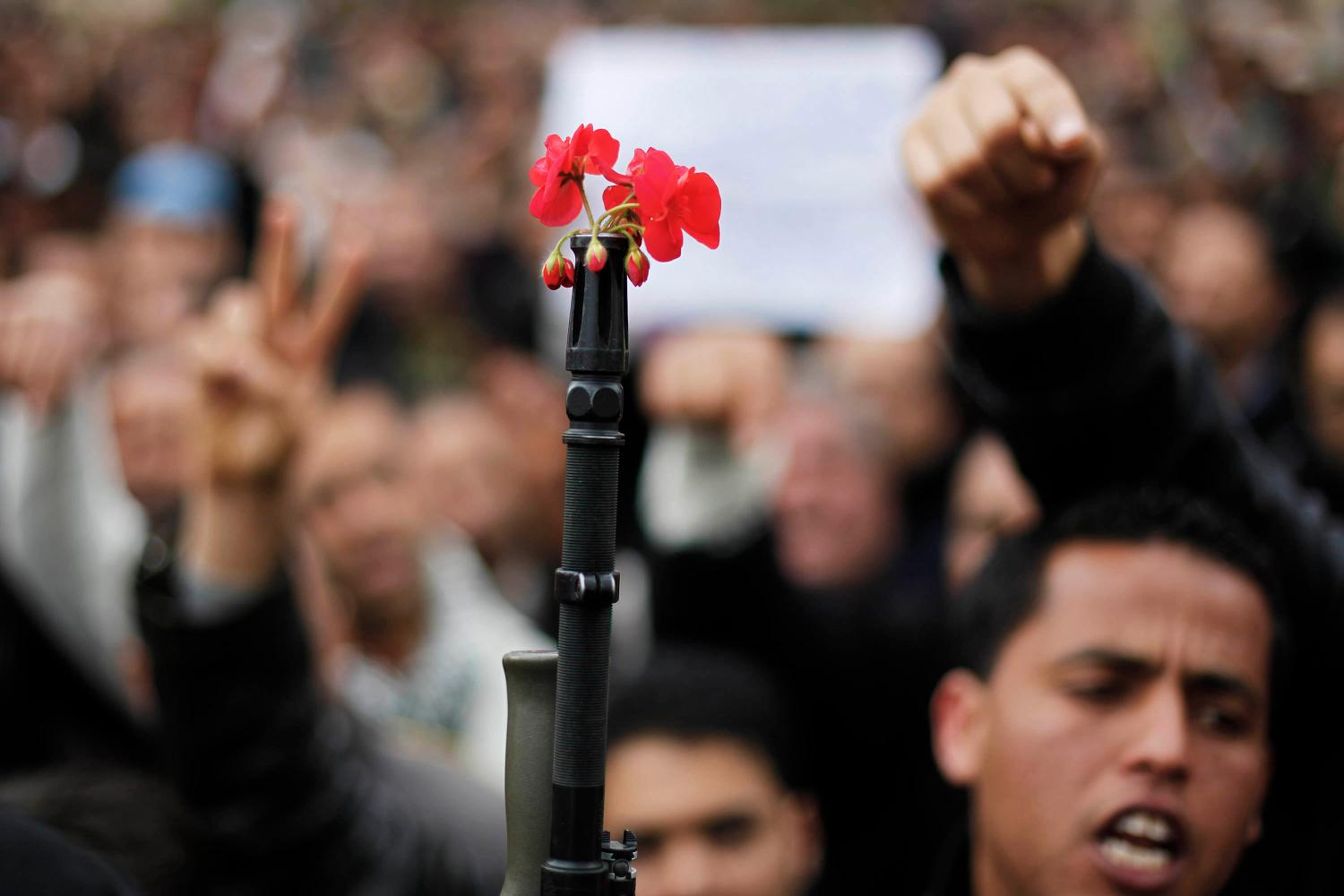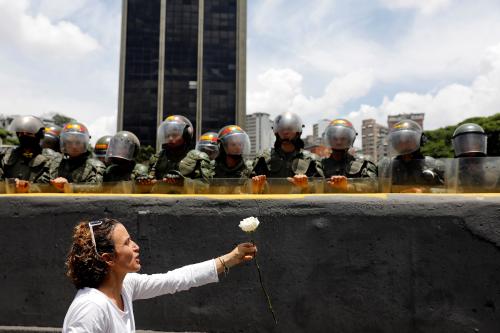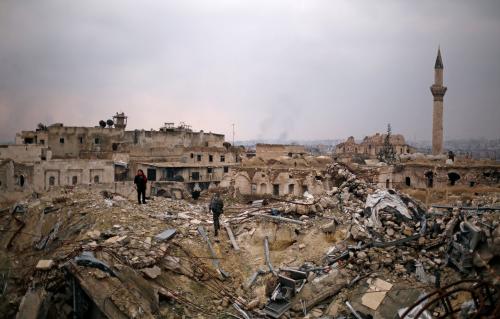This is the culminating report of a series of papers on democracy, security, and violent extremism prepared for the Community of Democracies’ Democracy and Security Dialogue. The project seeks to foster greater collaboration among democratic governments, donors, civil society, and academics to improve security outcomes and create a more conducive environment for the strengthening of democracy around the world.
SUMMARY
The Community of Democracies has a new imperative: to demonstrate to itself and to the world that the core values of democracy and human rights are not only goods in and of themselves, but also the most promising path to peace and security in an increasingly turbulent world. The report the authors present here to their representatives and to all engaged citizens from civil society, parliaments, businesses, and youth seeks to show that the norms and practices of liberal democracy and human rights do in fact lead to better security outcomes over time and across multiple dimensions.
Based on a year-long research project gathering the empirical evidence on the relationship between democracy and security, and on accumulated experience with combating the scourge of extremist violence and terrorism, the authors can say with confidence that liberal democracy, when allowed to consolidate and flourish, is the best path toward achieving domestic and international peace and security. A series of policy briefs covering a range of security-related issues from civil war to digital technology were commissioned by the Community of Democracies’ Permanent Secretariat and prepared by the Brookings Institution’s Foreign Policy Program and the Institute for Security Studies.
This research, which was complemented by consultations with policymakers, academic experts, and civil society during workshops held in India, South Africa, Mexico, Brazil, Poland, Sweden, and the United States, examines these linkages in substantial detail.
The evidence affirms the standard observation that democracies do not go to war against one another. But the data also prove that democracies are less likely to spawn internal armed conflicts or experience deadly terrorism because they channel dissent through nonviolent means and manage violence through respect for the rule of law and human rights. Authoritarian and failed states, on the other hand, are more likely to experience intra- and interstate conflict, generate refugees, hinder women’s equality, and harbor violent extremists.
The research also shows that states at intermediate stages of democratization—hybrid regimes with mixed features of democracy and autocracy, elite-driven patronage systems, and/or weak institutions—are generally the most vulnerable to insecurity, whether from violent crime, terrorism, or entrenched poverty. These are states where there is both weak institutional capacity and weak political legitimacy, which together contribute to a breakdown in the social contract between citizens and the government. This report argues that to foster domestic and international security, and to address the underlying drivers of violent extremism, this social contract must be repaired. It is essential, therefore, to adopt strategies to institutionalize democratic governance, inclusive politics, and human rights in fragile states. Civil society—as independent participants, monitors, and critics of our democratic institutions—are also critical ingredients to any strategy for peace.
The Community of Democracies’ participating states and civil society leaders can play a key role in shaping how democratic governments and citizens address the root causes of violent extremism and pursue strategies of security and peace in accordance with democratic values and practices. It starts and ends with the bedrock principle that democratic governments should always strive to perfect their own adherence to fundamental norms of human rights and democracy, even in the face of serious security pressures. In other words, they should practice what they preach. Throughout this report, the authors offer a plethora of other suggestions for international, national, and subnational actors to tackle the complex and overlapping relationships between democracy and security. They include:
- establishing inclusive and transparent mechanisms of political, economic, and security decisionmaking;
- investing early and heavily in meritocratic state institutions for delivering social services;
- empowering civil society, especially women, to play key roles in political, economic, and security fields of governance; and
- protecting an open, secure, and accessible ecosystem for digital technology.
One fundamental point from the accumulated knowledge and experience with democracy and security is the need for sustained, long-term leadership and action, tailored to local circumstances but always tethered to the fundamental principles of democracy and human rights laid out in the Community of Democracies’ Warsaw Declaration and the core international human rights treaties. If the international community stays focused on the ultimate aim of a world composed of states that respect the fundamental rights of their citizens and of their neighbors, the world will be that much closer to “saving succeeding generations from the scourge of war,” protecting human rights, and achieving “social progress and better standards of life in larger freedom,” as envisioned by the United Nations Charter.




